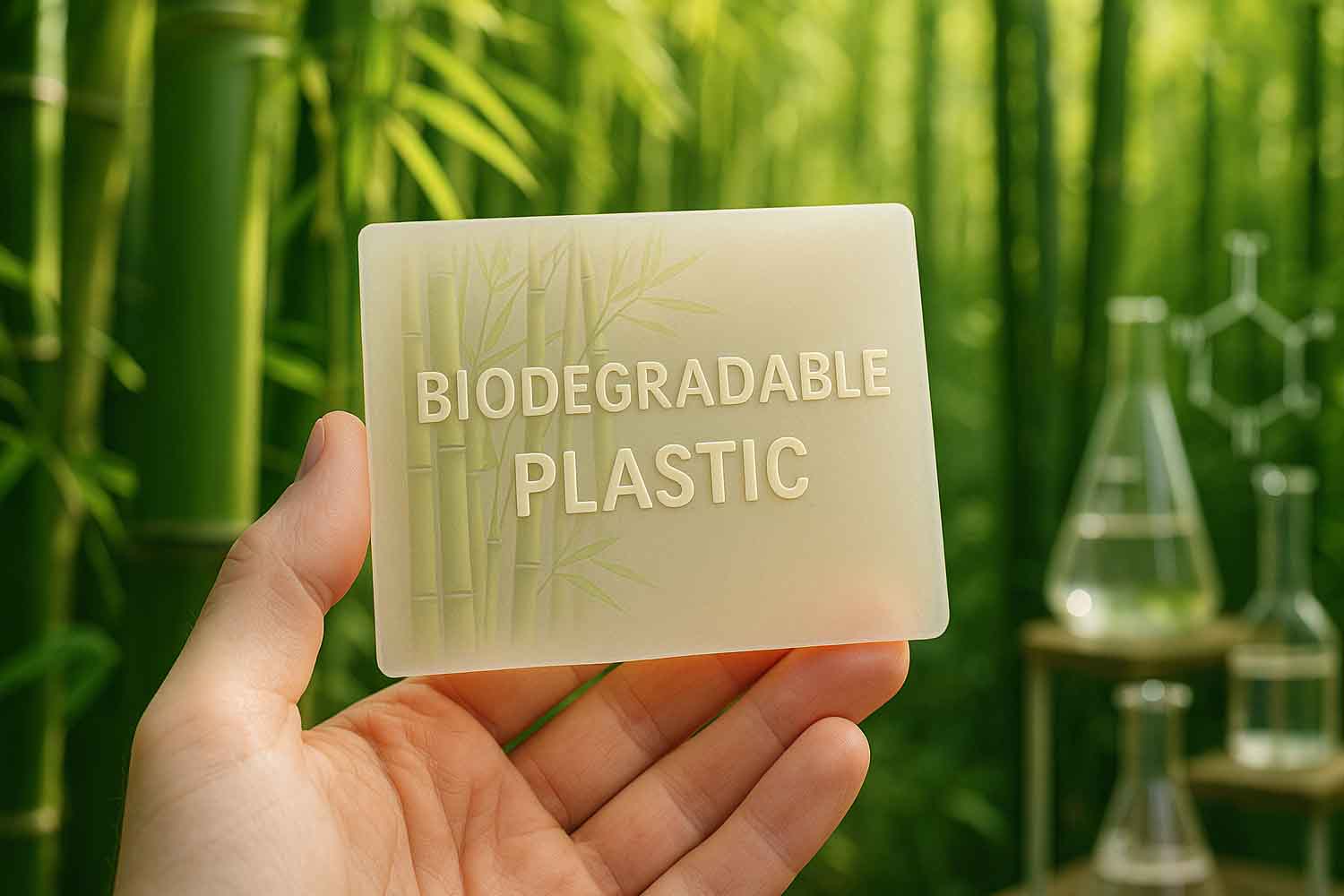In China, a team of researchers has transformed bamboo into a rigid, biodegradable, and extremely resistant plastic material, offering a concrete alternative to petroleum derivatives

The versatility of bamboo, already known for its applications in construction and craftsmanship, has gained a revolutionary new use: a biodegradable plastic derived from its cellulose, stronger than traditional plastics and easily recyclable. It was developed by Professor Dawei Zhao from Shenyang University of Chemical Technology in northeastern China.
While recent years have seen progress in developing flexible bioplastics to replace bags and packaging, finding a biodegradable substitute for hard plastics—such as those used in car interiors, appliances, or utensils—has remained a complex challenge. Zhao’s new bioplastic represents a breakthrough precisely in this area.
The production: from plant fibers to rigid bioplastic
The process developed by Zhao exploits bamboo cellulose, a renewable material that grows rapidly and has been primarily used in woven or artisanal products until now. The cellulose is treated with zinc chloride and a simple acid, which break down the complex polysaccharide bonds of the plant fibers. Subsequently, ethanol is added to the resulting solution: from this mixture, a rigid plastic is born, moldable through molding, injection, or mechanical processing techniques.
The result is a biodegradable material, robust, and with thermo-mechanical performance superior to both traditional plastics and other biopolymers on the market.
A limitation that becomes an advantage
The only real limitation of the material is its poor flexibility, which makes it unsuitable for every type of use. However, it’s precisely in rigid applications—those that generate the most persistent and difficult-to-recycle plastic waste—that this bioplastic shows its maximum potential. Replacing these products means significantly reducing the environmental burden of non-biodegradable plastic.
According to what was published by the Chinese team in the journal Nature, the new material decomposes completely in soil in just 50 days, offering minimal environmental impact. Furthermore, cost analysis demonstrates that the biopolymer’s recyclability allows it to achieve economic competitiveness with conventional plastics.
Source: Nature
